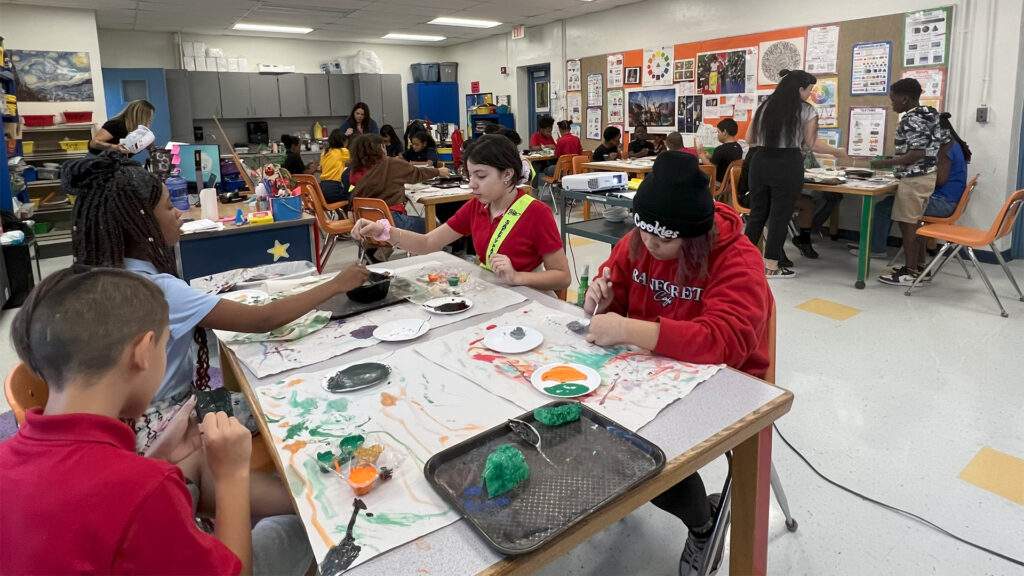By Veronica Morejon, Breach the Surface
Outdated information, underrepresentation and disenfranchisement have no space in the classroom – or our oceans. Having been born in Tampa, and raised some 20 miles from the city, I know firsthand what it means to be surrounded by something you can’t help but know very little about.
As a society, we mistakenly believe that everyone in a place like Florida must have equal opportunities to engage with or understand the ocean. In reality, a range of systemic barriers actually exist.
The general public’s knowledge of ocean-related issues is alarmingly low both nationally and internationally. A 2005 study, “Environmental Literacy in America,” estimated that less than 2% of all American adults are environmentally literate, highlighting the need for improvements in the education system. A 2018 study, “Development of the International Ocean Literacy Survey,” found that the American public is more literate about video games and gambling than our world’s oceans.

Oceans provide us with countless vital ecosystem services, but they are threatened by issues such as climate change, pollution, overfishing and habitat destruction. Unfortunately, schools are under-equipped to educate on these topics, leaving students without the knowledge necessary to address these concerns and lead us in a positive direction for ocean conservation.
According to the U.S. Census Bureau, about 20.5% of the city of Tampa’s population is 18 years old or younger. Fewer than half of Hillsborough County’s 27 public high schools offer any marine science-related courses and those that do often use outdated materials that lack a clear, actionable purpose.
In the schools that offer marine science as a course, students are met with outdated information with no real purpose behind the material taught. A science coach from a Tampa Bay county has described these marine science curricula as being driven by “passion projects” rather than comprehensive instruction.
Our schools need new programs that fill these gaps by engaging youth, educational institutions and the general public in ocean education that meets them where they are and directs their attention to critical issues facing our oceans. I founded Breach the Surface to design digital programs that work alongside educators and students alike to engage youth in marine science education and foster lifelong stewardship.

Programs like Breach’s digital podcast, Shellphone, highlight content from ocean educators, enhance in-school curricula, connect with broad audiences and assess real impacts on our local youth. In just a couple of months, Breach will be piloting its educational program, Ocean Class, within the Hillsborough County and greater Tampa Bay region’s marine science curricula. The hope is to receive critical feedback that will shape Breach’s ongoing efforts to increase access to marine science education.
Tampa is one of the top 15 fastest-growing cities in the U.S. Having lived 24 years in Tampa, it excites me to see this city grow. In the process, I would like to see Tampa and its residents (old and new) prioritize keeping our ocean-centric city admirable.
Equipping the next generation to confront the challenges that will inevitably alter our oceans should be at the forefront of all marine science curricula. By designing programs that keep youth engaged, spark curiosity and welcome youth-inspired solutions, we take a vital step toward safeguarding the health of this ecosystem.
Veronica Morejon is the founder and executive director of Breach the Surface, a nonprofit organization designing inclusive and equitable marine science education programs. Banner photo: An elementary school art class project for Earth Day using microplastics collected in Tampa Bay (Photo by Zach Nicolaou, courtesy of Breach the Surface).
Sign up for The Invading Sea newsletter by visiting here. To support The Invading Sea, click here to make a donation. If you are interested in submitting an opinion piece to The Invading Sea, email Editor Nathan Crabbe at ncrabbe@fau.edu.




Thank you Nathan and The Invading Sea for sharing my story!
The work Breach the Surface and Veronica does to improve education in ocean conservation and tackling the critical issues of microplastics and ocean waste is inspiring!
Veronica’s commitment to making a difference through her nonprofit reflects her exceptional skill and work ethic. It’s heartening to see someone so passionate about protecting our oceans and empowering others to join the cause. Keep up the amazing work!